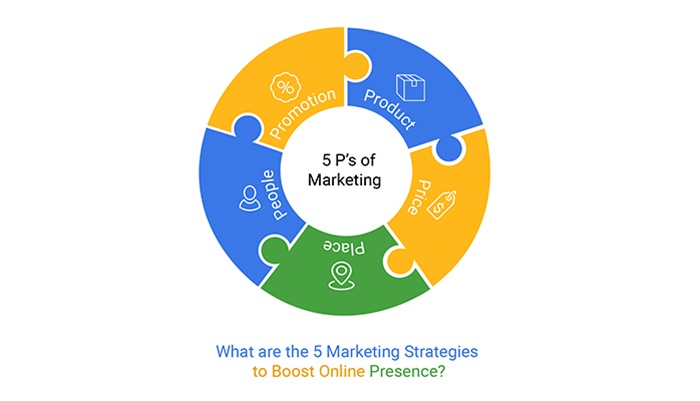Creating a solid business plan is a vital first step toward starting a successful venture. It lays out the strategy, vision, and operational plan for the business. But what happens after the business plan is done? For entrepreneurs, completing the plan is only the beginning. After this crucial stage, there’s a need to execute, adapt, and continuously fine-tune the vision. In this article, we will dive into the essential actions entrepreneurs must take after they have crafted their business plan, moving from planning to tangible, real-world execution.
1. Validate the Business Idea
Before diving into the market headfirst, it is critical to ensure the business idea can work in the real world. Even with a detailed business plan, an idea’s success is never guaranteed. Entrepreneurs need to validate their idea through research and real-world feedback.
1.1 Conduct Market Research
While some level of market research should be part of the business plan, after creating it, entrepreneurs must take their research further. Start by engaging with potential customers to better understand their needs, challenges, and preferences. This direct feedback can fine-tune the business idea and strategy. Entrepreneurs can use surveys, focus groups, or even launch a simple prototype to gather feedback.
1.2 Test the Concept
Validating the business model can be done by building a minimum viable product (MVP) or conducting a soft launch. The goal is to introduce the product or service to a small market segment to gauge interest, understand buyer behavior, and measure the market’s appetite. By testing early, entrepreneurs can make adjustments before launching on a larger scale, reducing risk.
2. Secure Funding
Once the business plan has been validated, securing the necessary funding becomes essential. A solid business plan helps attract potential investors, but the entrepreneur must take steps to ensure funding needs are met.
2.1 Identify Funding Sources
Entrepreneurs have various funding options to explore, including:
- Personal Savings: Self-financing through personal savings or assets.
- Angel Investors: High-net-worth individuals who provide capital in exchange for equity.
- Venture Capital: Venture capitalists invest in high-growth companies, often in exchange for a significant stake in the business.
- Bank Loans: Traditional loans from financial institutions that provide funding at fixed interest rates.
- Crowdfunding: Platforms like Kickstarter allow businesses to raise small amounts of money from a large number of people.
Choosing the right funding source depends on the nature of the business and its growth potential.
2.2 Prepare a Pitch
A well-crafted business plan will form the foundation for the pitch to investors. Entrepreneurs must distill their business plan into a compelling and concise presentation. This pitch should cover the problem the business solves, the market opportunity, financial projections, and how the funding will be used.
3. Build a Strong Team
Even the best business ideas require talented individuals to bring them to life. After developing a business plan, one of the entrepreneur’s next steps is to build a strong team that can execute the vision and support the business’s growth.
3.1 Define Key Roles
Entrepreneurs must identify the key roles needed to bring their business to life. These roles can include operational management, sales and marketing, customer support, and product development. Every role should have clear responsibilities and expectations.
3.2 Hire for Cultural Fit and Expertise
When hiring, entrepreneurs must prioritize not just technical skills but also cultural fit. A cohesive team with a shared vision and values will work better together. This means looking for people who are not just skilled but are passionate about the business’s mission. Early hires play a critical role in shaping the company culture, and their attitudes can set the tone for future growth.
3.3 Delegate Responsibilities
Once the team is built, it is vital to delegate tasks efficiently. Entrepreneurs often make the mistake of trying to manage everything themselves, but this leads to burnout. Trust in your team’s capabilities and ensure everyone knows their responsibilities.
4. Establish Legal and Financial Foundations
After completing the business plan, entrepreneurs must take care of the administrative and legal aspects of starting a business. This step ensures the business is compliant with regulations and has a strong financial foundation.
4.1 Choose a Legal Structure
The entrepreneur must decide on the legal structure of the business. This could be a sole proprietorship, partnership, corporation, or limited liability company (LLC). The structure chosen will impact taxation, personal liability, and the complexity of the business’s legal obligations.
4.2 Register the Business
Registering the business is a legal requirement and involves obtaining the necessary licenses and permits. Depending on the industry, entrepreneurs may need to get specific certifications or regulatory approvals.
4.3 Set Up Financial Systems
An organized financial system is critical for tracking income, expenses, and profitability. Entrepreneurs should set up accounting software or hire an accountant to manage financial records, file taxes, and ensure the business remains financially healthy. Setting up separate business bank accounts and securing the services of a financial advisor can also be essential in the early stages.
5. Develop a Marketing Strategy
Now that the business idea has been validated, the funding secured, and the team in place, it’s time to attract customers. Entrepreneurs must shift their focus toward marketing and customer acquisition strategies.
5.1 Identify Target Customers
The business plan will outline target demographics, but more refined targeting can happen after testing and validation. Entrepreneurs need to hone in on specific customer segments and buyer personas. This involves deeper research into customer pain points, purchasing habits, and media consumption.
5.2 Create a Brand Identity
Building a brand involves more than just a logo and tagline. It’s about defining the company’s voice, values, and messaging. Entrepreneurs must create a consistent brand identity across all channels that resonate with their target audience.
5.3 Leverage Digital Marketing
Digital marketing is one of the most cost-effective and impactful ways to reach potential customers. Entrepreneurs should consider strategies such as:
- Search Engine Optimization (SEO): Ensuring the business’s website ranks well in search engines.
- Social Media Marketing: Engaging with potential customers on platforms like Instagram, Facebook, and LinkedIn.
- Email Marketing: Building an email list and nurturing potential customers with valuable content.
- Content Marketing: Providing helpful and engaging content that positions the business as an authority in its industry.
By focusing on these digital channels, businesses can quickly grow their online presence and attract customers.
6. Network and Build Partnerships
Entrepreneurs don’t operate in a vacuum. Success often depends on building relationships and networking within the industry.
6.1 Attend Industry Events
Entrepreneurs should actively attend industry conferences, trade shows, and local business events. These platforms provide opportunities to meet potential customers, partners, and investors. Attending these events also helps to stay updated on industry trends and emerging technologies.
6.2 Build Strategic Partnerships
Partnering with other businesses can provide entrepreneurs with valuable resources, expertise, or access to new customer bases. Strategic alliances, collaborations, or even joint ventures can help a business scale faster than going it alone.
7. Monitor and Adjust the Plan
Business plans are living documents, and as the business grows, the plan will need adjustments. Entrepreneurs must continuously monitor the company’s performance and be ready to adapt.
7.1 Set Key Performance Indicators (KPIs)
KPIs help entrepreneurs measure the success of their business in key areas like sales, customer acquisition, and operational efficiency. Setting specific, measurable, and realistic KPIs allows the business owner to track progress and make data-driven decisions.
7.2 Evaluate and Adapt
Not every strategy outlined in the business plan will work as expected. Entrepreneurs must be willing to pivot when necessary. Evaluating performance through market feedback, sales data, and internal assessments will show where changes need to be made. Whether it’s adjusting pricing, targeting new customer segments, or launching additional products, flexibility is critical.
8. Stay Focused and Persistent
Lastly, one of the most important things an entrepreneur can do after creating a business plan is to stay committed. Business success doesn’t happen overnight, and there will be challenges and setbacks. However, persistence and focus are key traits of successful entrepreneurs.
8.1 Maintain a Long-Term Vision
While it’s important to be adaptable, entrepreneurs should always keep their long-term vision in mind. This ensures they remain on the right path, even when short-term difficulties arise.
8.2 Embrace Failure as a Learning Opportunity
Failure is an inevitable part of entrepreneurship. Whether it’s a marketing campaign that didn’t yield results or a product that didn’t resonate with customers, these failures provide valuable lessons. Entrepreneurs should view them as opportunities to learn, improve, and grow their businesses.
Creating a business plan is a significant milestone, but it’s just the beginning of the entrepreneurial journey. After completing the plan, entrepreneurs must focus on validating their idea, securing funding, building a strong team, and executing their marketing strategies. By continuously monitoring progress, adapting to changes, and maintaining persistence, entrepreneurs can turn their vision into a successful business. The journey is long and challenging, but with the right steps, the dream of entrepreneurship can become a reality.



